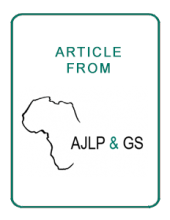Land Library
Welcome to the Land Portal Library. Explore our vast collection of open-access resources (over 74,000) including reports, journal articles, research papers, peer-reviewed publications, legal documents, videos and much more.
/ library resources
Showing items 1 through 9 of 15.Over the past several decades, land investments have dramatically increased to meet global food and biofuel demands, produce industrial commodities, protect environments and develop urban centres.
The process of urbanization in China has been accompanied by the conflict of land expropriation, which is not conducive to social stability.
In many cities and urban areas in Africa, land acquisition for urban redevelopment, land readjustment, and resettlement of affected urban residents are currently framed as innovative approaches to eradicating informal settlements, improving the living environments, and supporting the implementati
The multiple forms of land acquisitions show direct and indirect implications on water. The motive to utilize, control or grab water is devised through acquiring land. There are embedded water issues in almost all land acquisitions.
The Voluntary Guidelines on the Responsible Governance of Tenure (VGGT) call for governments to clearly define the term ‘public purpose’ to allow for judicial review of the goals of expropriations of property.
This paper analysed land governance and crop commercialization in Nigeria. General Household Survey (Living Standard Measurement Survey) panel data for the post-planting and post-harvest periods of 2015 and 2016 cropping seasons were used.
Uganda’s oil and gas sector has transitioned from the exploration phase to the development phase in preparation for oil production (the operations phase).
The expansion of oil palm plantations in Papua province, Indonesia, involves the conversion of forests, among other land types in the landscapes, which are a source of clan members’ livelihoods.
The recent global surge in large-scale foreign land acquisitions marks a radical transformation of the global economic and political landscape. Since land that attracts capital often becomes the site of expulsions and displacement, it also leads to new forms of migration.







